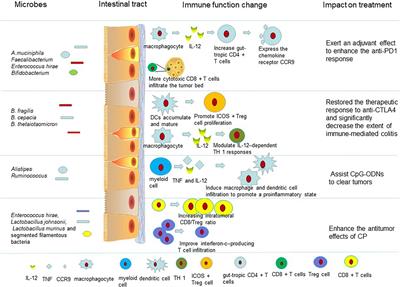EDITORIAL
Published on 21 Jul 2020
Editorial: The Human Microbiome and Cancer
doi 10.3389/fmicb.2020.01514
- 2,189 views
- 1 citation
24k
Total downloads
90k
Total views and downloads
EDITORIAL
Published on 21 Jul 2020
ORIGINAL RESEARCH
Published on 18 Sep 2019

ORIGINAL RESEARCH
Published on 02 Aug 2019

ORIGINAL RESEARCH
Published on 26 Jun 2019

ORIGINAL RESEARCH
Published on 25 Jun 2019

REVIEW
Published on 25 Jun 2019

ORIGINAL RESEARCH
Published on 05 Jun 2019

ORIGINAL RESEARCH
Published on 07 May 2019

HYPOTHESIS AND THEORY
Published on 29 Apr 2019

ORIGINAL RESEARCH
Published on 08 Jan 2019

ORIGINAL RESEARCH
Published on 20 Nov 2018
